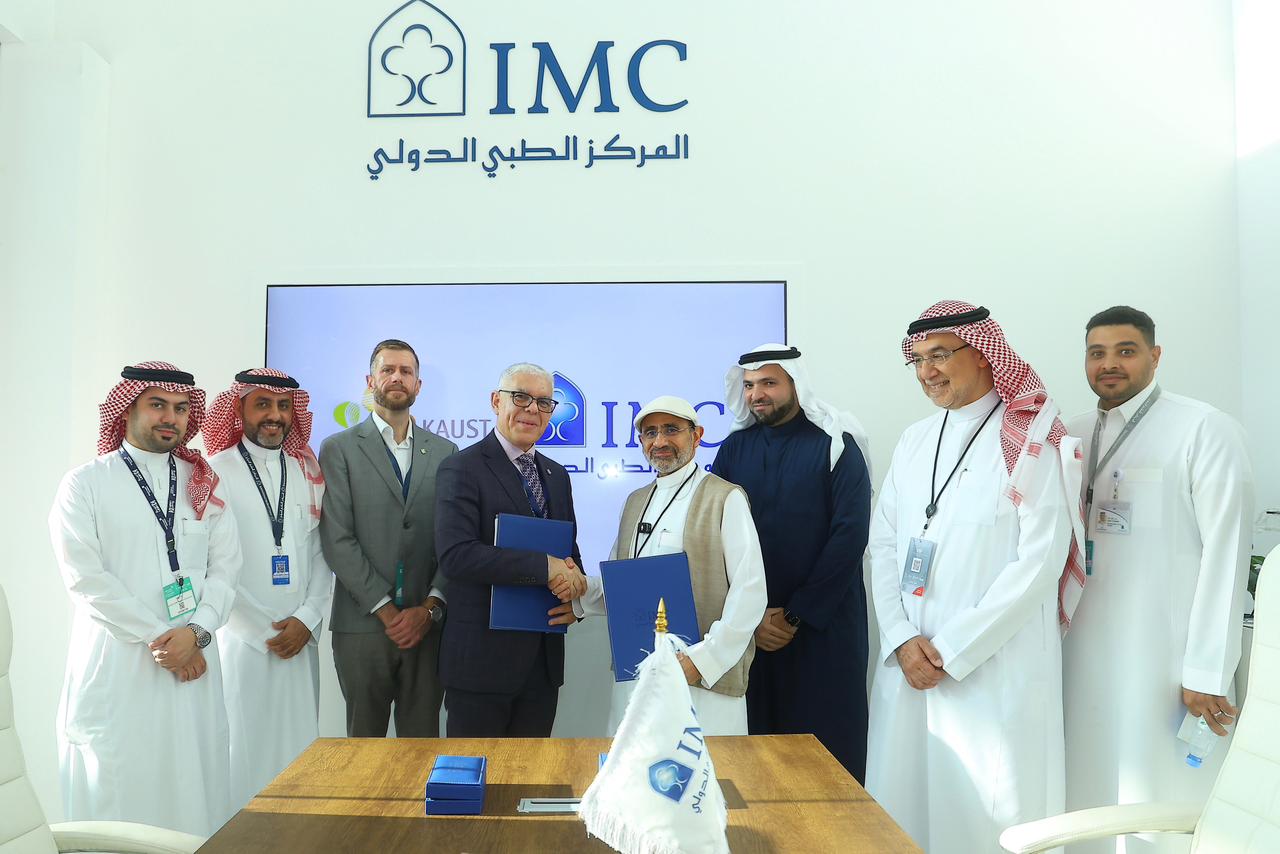KAUST and IMC sign MoU to strengthen collaboration in medical AI research

King Abdullah University of Science and Technology (KAUST) has signed a memorandum of understanding (MoU) with the International Medical Center (IMC) to strengthen cooperation in scientific research related to wellness, quality of life, and population health management. The agreement supports Saudi Arabia’s efforts to advance the national healthcare ecosystem and foster medical innovation.
The MoU was signed by Dr. Walid Fitaihi, chairman and CEO of the International Medical Center, and Professor Pierre Magistretti, vice president for research at KAUST.
The agreement establishes a strategic partnership to enhance collaboration in research areas related to wellness and quality-of-life management, biotechnology, and the development of artificial intelligence (AI) applications for diagnosis and treatment. It also includes joint research on population health, rehabilitation and functional recovery programs, precision medicine, modern diagnostic technologies, and advanced therapies.
Dr. Imed Gallouzi, professor of bioscience and founding chair of the KAUST Center of Excellence for Smart Health, said the agreement marks a significant step toward integrating scientific research and clinical applications. It will help translate AI and precision medicine research innovations into practical medical solutions.
Gallouzi added that collaboration with IMC reflects KAUST’s commitment to supporting the national healthcare ecosystem through interdisciplinary research and advanced technologies to enhance quality of life and accelerate progress in smart health — aligning with the goals of Saudi Vision 2030 to build a sustainable, knowledge- and innovation-driven healthcare future.
Dr. Fitaihi said that this partnership is a key pillar of IMC’s scientific research and medical education strategy. He highlighted the Center’s ongoing efforts to establish a pioneering medical college, the first of its kind in the region, focusing on the future of healthcare through AI integration, while placing great importance on training “wise and compassionate physicians.” He explained that such a physician performs the essential human roles in healthcare, such as wellness management, empathy, holistic care, and advocacy for health. AI cannot replace these roles.
The partnership embodies the shared vision of both institutions to accelerate the transformation of knowledge into practical solutions that enhance quality of life and public health, advancing the goals of Saudi Vision 2030 to build a vibrant society and an innovation-driven economy.

